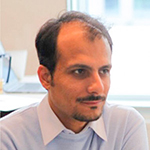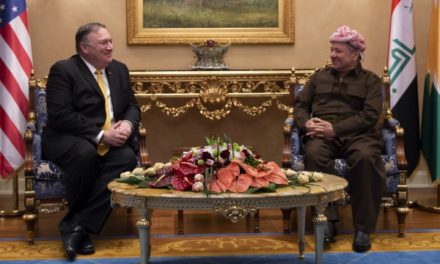Iraq has witnessed several waves of demonstrations since the collapse of Saddam’s regime in 2003, but the October 2019 demonstrations seem to have had a distinct impact on the political process. This should not come as a surprise if decision makers and analysts look at the situation in a systemic view.
Systems thinkers look at systems, including social systems, as interconnected sets of elements which organize in order to achieve something. The view entails the presence of three things: elements, purpose or function, and interconnections.
One of the characteristics of systems is that if you want to change a system, then a deep and profound impact can be achieved by altering the interconnections between its elements. In contrast, the least effect can be achieved by changing the elements of the system. The greatest change however can be achieved by changing the least obvious part of the system, which is its purpose or function. In fact, the change in the purpose can be so profound that even if the elements and interconnections remain the same, the system will be strongly altered.
Applying this perspective to the political system in Iraq, when Saddam was removed, many talked about the emergence of a new system. Certainly, there has been dramatic changes and events that transformed Iraq. The leadership of the new system is different from the old one, representing the change in key elements of the system. Furthermore, the way power is transferred, and people represented are also profound changes, representing changes in the interconnections of elements, such as the people, institutions, and leaders.
However, as mentioned before, changing certain elements, in this case, the leaders of a system, does not necessarily mean change in the system. Many parts of the old system are still intact and have not changed in the way required. Analysts agree that Iraq’s economic system, although superficially a market economy, shows major characteristics of a socialist system. Many outdated laws are still applied today, although every legal expert agrees on the need to change them as they do not belong in a democratic system.
If some military leaders and security officials in Iraq today respond in brutal and abusive ways to perceived threats, which is more fitting to the behaviors of a dictatorship, then it is also a clear sign that several old structures are still in place. Certainly, this might mean that some of these officials have served under Saddam’s rule and applying the same mentality of his regime, then it is time to get rid of these individuals. However, new structures should have been established to prevent such behavior in the first place.
Another clear example of how the government behaved in ways befitting outdated socialist systems is offering government jobs and land in response to the demands of real reform by the demonstrators. This showcases how old structures and ways of thinking are still deeply ingrained in the state and the mindset of decision makers. This also means that whether the current cabinet is voted out or remains in office, as long as structural reforms are not applied, which realistically will not happen in the short-term, it means that little change will be seen by the people.
It is important for all stakeholders in Iraq’s society at this stage to be thoughtful about how to behave and how to respond. The old ways of thinking will not work anymore and without wise decisions with a long-term outlook, and real efforts targeting the structures and purposes of the state as a system with the function to serve the people, the cycle of violence, ineffectiveness, and aimlessness is going to continue.
On one hand this requires real efforts to reform, featuring effective leadership, which is going to be difficult and will take a long time, without neglecting short-term wins. On the other hand, it will require realistic thinking and awareness from activists and social reformists as change is not easy and involves everyone. Therefore, the blame game will not lead to real change – only a mentality where people think about how everyone can contribute to the solution will succeed.
Most importantly however, every change and every action need to be in line with the democratic system. Killing demonstrators is a crime. Cracking down on demonstrators violently without clear violations of peaceful demonstrations from their side will lead to more violence. Elements of the state which still behave in ways befitting of authoritarianism need to be removed from their positions and brought to justice. Let us also not forget that democratic elections are supposed to be a means to reforming the political system. If governments are not effective, it is important to change them democratically. However, nothing is going to happen if transformation and reform does not materialize at the core level by involving everyone.

Muhammad Al-Waeli
Muhammad Al-Waeli is a Ph.D. candidate in management focusing on leadership and reform in Iraq.










